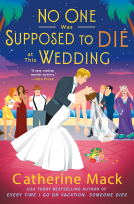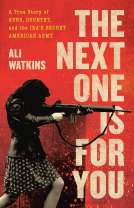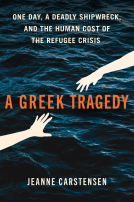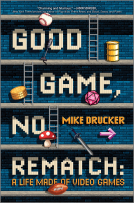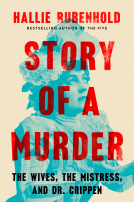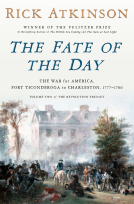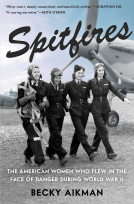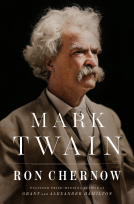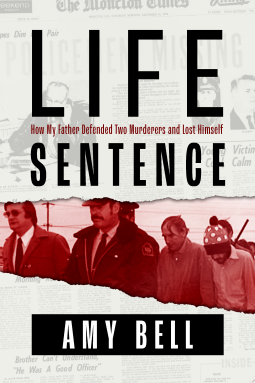
Life Sencence
How My Father Defended Two Murderers and Lost Himself
by Amy Bell
This title was previously available on NetGalley and is now archived.
Send NetGalley books directly to your Kindle or Kindle app
1
To read on a Kindle or Kindle app, please add kindle@netgalley.com as an approved email address to receive files in your Amazon account. Click here for step-by-step instructions.
2
Also find your Kindle email address within your Amazon account, and enter it here.
Pub Date Apr 04 2023 | Archive Date Apr 11 2023
Talking about this book? Use #LifeSencence #NetGalley. More hashtag tips!
Description
On December 15, 1974, when Amy Bell was one year old, the city of Moncton, New Brunswick, was consumed with the search for two missing police officers—Corporal Aurèle Bourgeois and Constable Michael O’Leary. They had been abducted by petty criminals Richard Ambrose and James Hutchison after a kidnapping that had scored them $15,000. The search would lead to a clearing in the woods where the officers were found—murdered, and buried in shallow graves.
Amy’s father, Ed Bell, stepped up to defend the killers. His unpopular stance—“every person accused of a crime deserves a defence”—eventually led to the ruin of his career and his marriage, and Amy and her brother lived with the aftereffects: poverty and isolation. Ed Bell never spoke of his involvement in this case. It wasn’t until forty-two years later, when he lay dying, that Amy, now a crime historian, stumbled upon a Polaroid photograph of one of the killers among her father’s things. That discovery led her on a search for answers.
Life Sentence: How My Father Defended Two Murderers and Lost Himself is a riveting work that fuses personal and criminal justice history to tell the story of a horrific crime and examine its terrible costs. Includes personal and archival news images.
Available Editions
| EDITION | Paperback |
| ISBN | 9781774711866 |
| PRICE | CA$22.95 (CAD) |
| PAGES | 248 |
Links
Available on NetGalley
Featured Reviews
I absolutely love this book. While my threshold for true crime is not nearly as high as other genres, Amy Bell's book is truly exceptional. It is a true crime book about the murder of two Canadian police officers, but also a memoir about how being the defense attorney for the murderers destroyed her father and family.
There are a few things which really drew me into this book. The first is the fact that it is very short. It is less than 200 pages. By itself, this is not necessarily a "good thing" but Amy Bell is a fantastic writer. She does more with her words than most authors and it makes the story hit that much harder. For example, her passage about the funeral of the two officers is short but poignant. While some authors may take pages upon pages to talk about this episode while pushing numerous emotional buttons, Bell makes subtle word choices and sticks to the facts.
Finally, Bell tells her own story about her strained (to put it lightly) relationship with her father and what it has done to her. Just like the rest of the book, she doesn't wallow or editorialize. It makes it that much easier to connect with the fact that she loved her father, but probably didn't like him all that much. It's a great book and you should read it.
(This book was provided as an advance copy by Netgalley and Nimbus Publishing. The full review will be posted to HistoryNerdsUnited.com on 4/13/2023.)
A sad but enlightening story about the author’s lawyer father and a case he took on that tore him apart. It affected the whole family by the time it was done, and their lives were forever changed. It took place in Canada in the 70s. Well researched and written, much background is given on things of that era and location.
 Reviewer 434170
Reviewer 434170
Thanks to NetGalley and Nimbus books for this fascinating, thought-provoking ARC. Amy Bell is a crime historian, as shown in her extensive research and writing. Although a short book, it is not an easy read. There are several main issues addressed.
It chronicles a shocking crime that took place in Moncton, NB., in 1974 when Amy was only one year old. I remember the time vividly because I had just moved to Moncton before the terrible events. The son of the owner of the great seafood restaurant, Cy's, on the main street had just been kidnapped, and a ransom was demanded. During the ransom drop and the search for the young man who had been abducted, two police officers disappeared. The boy was returned without harm. Two petty criminals, R. Ambrose and J. Hutchison, were found with $15,000 in marked ransom money. A broad and comprehensive search went out for the two missing police officers. Their bodies were found in shallow graves in a wooded area with evidence that Ambrose and Hutchison had abducted and murdered them. The dreadful ordeal of the search and discovery is deeply lodged in my mind.
Amy was just a toddler when this occurred. Her father defended the accused criminals. They were found guilty and received the death penalty. An appeal was lost, but later the death penalty was abolished in Canada, and they were to be imprisoned for life. Amy's father emerged from the trial as a shattered man, having lost the case, his career and his marriage. He never spoke about the trial afterwards. Amy and her brother grew up in poverty and isolation. Their home was now a trailer that became increasingly cluttered by her depressed, bitter, withdrawn father.
When her father was dying forty-two years later, Amy found a photo of Ambrose among his belongings. This sent her searching for answers about the crime and her father's role as the defence attorney.
She gives her thoughts on why an attorney would defend publicly hated, murderous clients and describes how many had their lives changed after their clients received the death penalty or life sentence. She writes that a defence lawyer must be zealous advocates for their clients, loyal, detached and non-judgemental about their client's moral character or potential guilt. As an officer of the court, the defence lawyer is required to cooperate and help administer justice. This conflicting role leads to much pressure and strain on the defence. Amy suggests that defence lawyers tend to empathize with their clients and view their convictions as failures on their part. The belief is that " Every person accused of a crime deserves a defence." Their taking a defence role often leads to public outrage when the public does not feel the criminals deserve it, and it wastes taxpayers' money.
The book takes through the details of the court trial and the police investigation leading to the kidnapping and murder of the two police officers. New facts are revealed that were not fully reported by the Canadian press.
The traumatizing event of 1974 still lingered in people's minds. It was thought nothing like it would ever happen in this small city again. In 2014, J. Bourque was seen walking around a trailer park in northwest Moncton carrying a rifle and handgun while dressed in camouflage. He walked away from the park, and the RCMP was called. This was the same trailer park where I lived when I first moved to Moncton. The area was put in lockdown. RCMP officers were ambushed. Three were shot to death, and two more were injured. Bourque was sentenced to 75 years in prison, 25 years for each murdered Mountie. Recently this was overturned, and he can apply for parole after 25 years. Many members of the public are incensed by this ruling.
An interesting and well-documented look at the Canadian justice system that leads you through the trial and Amy's father's part in it. She includes pictures of her early family life and photos of newspaper pages from 1974 and pictures of the criminals. I think she came away with a better understanding of her estranged father and the effects on her own personality.

